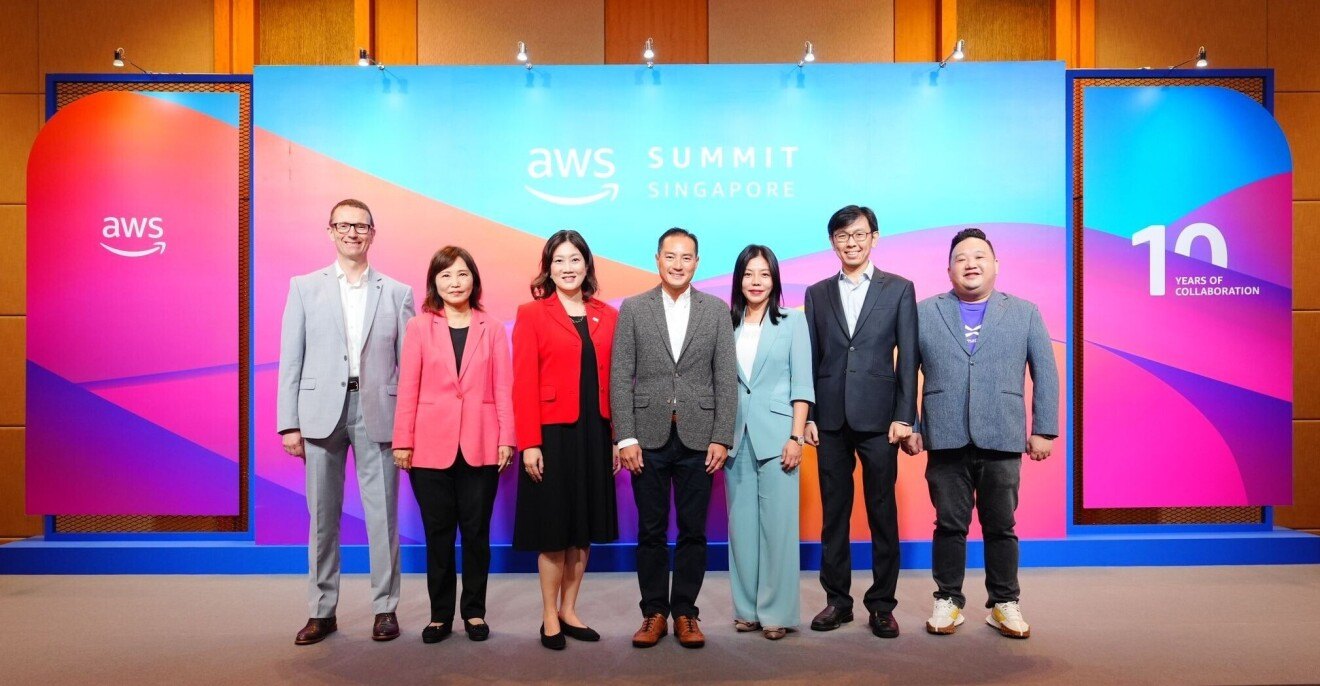AWS‘s Decision in Singapore Cloud Market: $9 Billion More!
AWS plans to spend $9 billion to promote Singapore's cloud computing infrastructure, starting a new round of competition in cloud market.
At the AWS ASEAN Summit on May 7, Amazon Web Services (AWS) announced its investment of S$12 billion (approximately $9 billion) to expand its cloud infrastructure in Singapore, further extending its operations in Southeast Asia. The inauguration ceremony was presided over by Tan Kiat How, Senior Minister of State for Communications and Information of Singapore.
Tan Kiat How pointed out that the flourishing of AI has led to a surge in demand for cloud computing services and data centers, as training AI models requires vast amounts of data, which the cloud provides access to. "In addition to providing digital infrastructure for organizations, AWS can also help businesses access digital resources such as computing, storage, as well as cutting-edge features like AI and AGI."
Priscilla Chong, AWS Regional Manager, issued a statement saying, "This investment will generate a ripple effect throughout Singapore by fostering economic growth and cloud adoption, continually enhancing the country's economic strength, digital capabilities, and workforce skills."
First ASEAN Hub
Between 2024 and 2028, AWS will double its investment in the country to meet the growing demand for cloud services and accelerate the adoption of AI. Specifically, this funding will be used for the construction, operation, and maintenance of data centers, including utilities, wages, and rent.

Since 2010, AWS has established its first Asia-Pacific regional data center entity in Singapore. Since then, AWS has injected over S$11 billion(approximately $8.25 billion) into this entity, continuously providing secure and scalable cloud infrastructure locally and deeply embedding itself in the country's digital services landscape, providing foundational support to thousands of online platforms such as Trust Bank, Grab, PayNow, academic institutions, and public sectors.
According to statistics, from 2010 to 2023, AWS has provided over 4,800 full-time job positions annually for local enterprises. Since 2017, AWS has trained over 400,000 cloud computing talents in the country and has partnered with Singapore's government, public sectors, and enterprises to accelerate the local AI application. In 2022, Singapore's digital economy generated approximately $106 billion in added value, accounting for around 17% of the GDP that year.
Regarding this investment, AWS expects to contribute approximately S$23.7 billion (approximately $17.5 billion) to Singapore's GDP by 2028 and create an average of about 12,300 job positions annually for local enterprises, such as construction, facility maintenance, engineering, telecommunications, and other industries that are part of the AWS data center supply chain.
AI Training Program
In addition to financial investments, AWS has announced a new project in collaboration with IMDA called AWS AI Spring, which will conduct seminars for over 100 companies in the next two years, collaborating with the Singapore government to assist small enterprises in utilizing AGI.
During this period, AWS will provide a range of AGI tools and expertise to enterprises, while IMDA will support eligible enterprises in developing and deploying corresponding solutions through funding, such as customer service chatbot Sea-Lion and analytical tools.

Recently, AWS has signed a memorandum of understanding with the Singaporean health technology institution Synapxe to develop an AI for analyzing healthcare system data.
While targeting governments, public organizations, and enterprises, AWS AI Spring also embraces students. The company plans to train 5,000 technical talents annually in universities, polytechnics, and technical education colleges, using its AGI services to facilitate learning and experimentation. The training period will continue until 2026.
Cloud Computing Market Competition
Benefiting from enterprise technology modernization projects and the demand for AI services, AWS has been keen on overseas markets in recent years. Since the beginning of this year, it has invested around $35 billion outside the United States, including in regions such as Japan, Saudi Arabia, and Mexico. Southeast Asia is one of the key focuses for the company: at the end of 2021, AWS established a new entity in Jakarta; in 2022, it announced a $5 billion investment in Thailand; and the following year, it plans to invest $6 billion in Malaysia.
Today, Singapore has emerged as one of the largest data center hubs globally, holding over half of the region's capacity. However, in 2019, the Singaporean government temporarily suspended new data center projects due to environmental concerns, leading some operators to shift to neighboring countries like Indonesia and Malaysia. Shortly after, the ban on such projects was lifted with the introduction of higher sustainability standards.

According to Statista data, AWS was the largest cloud infrastructure provider in the global market in the first quarter of this year, accounting for 31% of the global cloud infrastructure market share, slightly down from 32% in the same period last year, with Microsoft Azure following closely as the second-largest provider.
However, AWS's competitors have not slowed down their competition in the region. In December last year, NVIDIA CEO Jensen Huang visited Malaysia, Vietnam, and Singapore, and entered into a partnership with Malaysia's YTL Power with a $4.3 billion investment; last month, Apple CEO Tim Cook visited Singapore, Vietnam, and Indonesia successively, stating plans to invest over $250 million in cloud business in Singapore.
Last week, Microsoft CEO Satya Nadella visited Southeast Asia and announced investments of $1.7 billion and $2.2 billion in Indonesia and Malaysia, respectively, specifically for the development of cloud computing and AI. Malaysian Minister of Trade Tengku Zafrul Aziz also stated on May 6 that Google will soon announce its investment plans in the country.
·Original
Disclaimer: The views in this article are from the original Creator and do not represent the views or position of Hawk Insight. The content of the article is for reference, communication and learning only, and does not constitute investment advice. If it involves copyright issues, please contact us for deletion.